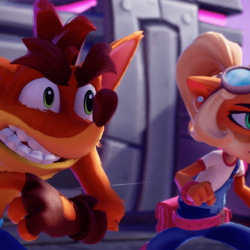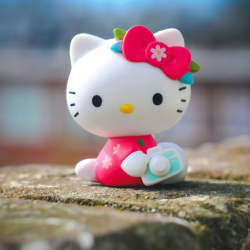Why do we buy Russian Roulette Jelly Beans when we know some of them will taste like vomit?
Well, there is a behavioural science theory known as Risk Homeostasis Theory (or the Risk Compensation Theory) that explains this counter-intuitive proposition.
This theory was initially proposed in 1982 and suggested that as human beings, we have an accepted level of risk. What we do, subconsciously, is compare the amount of risk we perceive with a target level of risk that we find acceptable. As a result, we then subconsciously adjust our behaviour in an attempt to eliminate any discrepancies between the two. What this means, conversely, is that the safer we feel, the more risk we are likely to take.
With harmless vomit flavoured Jelly Beans, this paradox isn’t really a problem. But the same principle applies across many aspects of our lives, where consequences can be more far reaching than a foul-tasting sweet.
Indeed, there have been a couple of studies done since the initial theory was posited, both in relation to road transport. The first was by Sam Peltzman, who theorised that with the advent of safety policies such as seatbelts and airbags we should, in theory, be safer when travelling in our cars and therefore see a reduction in road accidents and fatalities.
However, what Peltzman actually witnessed was that whilst fatalities did initially decrease, there was actually an increase in accidents, due to people driving with less care and attention than previously, primarily because they felt better protected and safer. The rise in the rate of accidents was enough to offset the decreased fatality rate. In other words, the very thing brought in to make us safer, could be argued to do the opposite. Moreover, it actually followed that those most likely to be at risk were other road users and pedestrians. The net effect… well, you get the gist.
There have been more recent examples of how people have modified their behaviour as a result of a perceived risk. In an attempt to reduce the risk travellers felt they were under post 9/11, there was a decrease in flights booked in the US and an increase in road travel, with many people deciding to drive between cities rather than fly. A higher quantity of road accidents was recorded and it was estimated that there was an increase of 1,595 fatalities as a result.
But what does this mean for marketers?
Well, quite a lot. Human behaviour is a complex subject and one that is becoming ever more important as brands seek to attract and retain customers’ attention. While researching our recent, wide-reaching behavioural science study into how to create memorable experiences, we found that the human attention span is now rumoured to be just 8-seconds long — shorter than your average goldfish.
Humans are ‘cognitive misers’, ie — we preserve our energy-intensive brain function as much as possible. It is estimated that we are consciously aware of only 0.0004% of all the information our brains process every second.
Psychologists consequently agree that most of our decision-making necessarily relies on emotion and bias: generally speaking, we don’t have the time, energy or brainpower to think everything through carefully. We rely on short cuts – aka System 1 Thinking – that has been developed over millennia of evolution. Sometimes, as we see with the Risk Homeostasis Theory, outcomes can take a very different course to that which could be expected.
So next time you’re planning a marketing campaign, health and safety focussed or otherwise, chew on a vomit flavoured Jelly Bean to remind yourself that sometimes, just sometimes, the more we make ourselves feel safe, the more risk we end up taking.
Featured image: Lucas Souza / Pexels




























